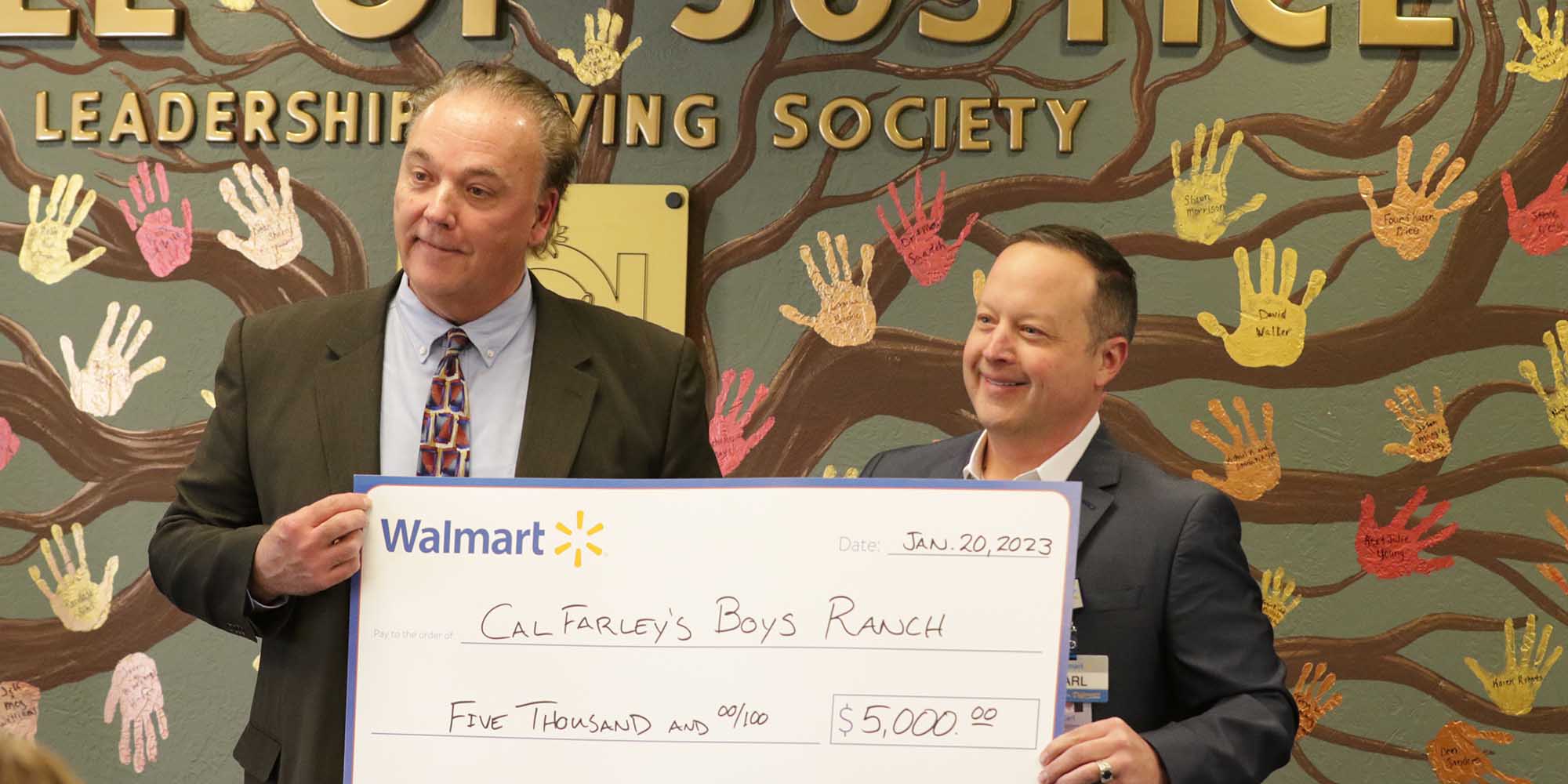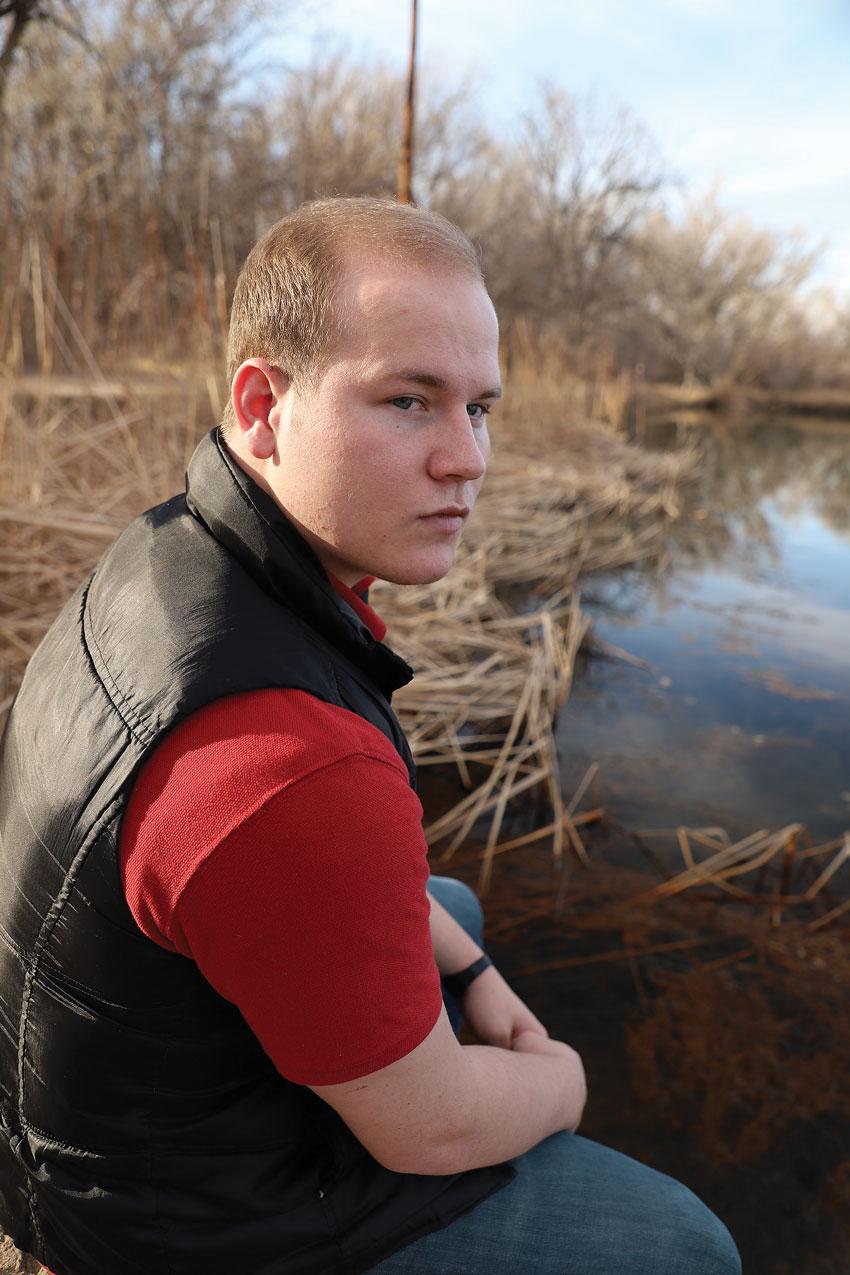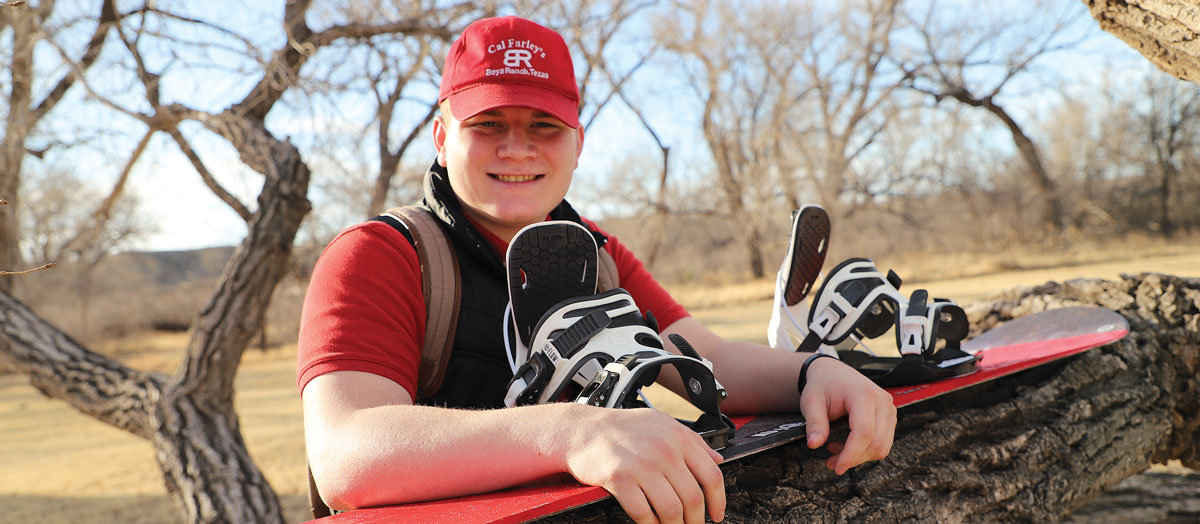“Neurofeedback really helped me with my anger,” says Keith, adding, “I’ve learned to meditate on my own, and that also helps me regulate.”
A conversation with this 18-year-old unwinds like a roll of twine. Now beginning his sixth year at Boys Ranch, he eagerly talks about his experience here. Keith explains how he’s replacing years of emotional outbursts and angry fits, becoming a more mature young man who works every day to own and manage his behavior.
But, what is this ‘neurofeedback’ Keith says helped him so greatly?
“Neurofeedback is a sophisticated form of bio feedback that actually trains the brain to normalize brain waves and make them flexible and adaptable to situational needs,” explained Shanna Tipton, Cal Farley’s neurofeedback specialist.
Tipton said working with residents to help them train themselves to be aware of and in control over their moods, emotions and even brain-wave patterns can have a better long-term result than relying on medication.
It was two years ago that Keith began participating in neurofeedback.
“I’d sit in a chair and they’d put sensors on my head,” he explained. “If I was tired, or upset, it would read that. Sometimes we’d play a ‘brain game,’ like Pac-Man, except we wouldn’t have any controllers.”
Keith explained the game would get increasingly harder, which could bring on frustration.
“If you’re not (emotionally) regulated, the screen goes black and it stays black until you get regulated,” he said.
More than once, Keith found himself leaving a black screen to retreat to a chair in a quiet place.
“Then, we’d talk about it. It was really interesting,” he said.
Keith said the understanding Cal Farley’s has provided him about how his brain functions, helping him learn to identify his emotional triggers, has improved other areas of his life, too.
For one thing, he’s learning his limits, limits on what he can tolerate from others, and his own personal strengths.
“I’ve had so many significant changes here. For one thing, I used to have more hair,” he says, laughing.
It’s a lighthearted moment, but even that ability to enjoy the fun of the moment is something he wasn’t always able to do.
“I used to be really bad about my anger,” Keith said. “I didn’t know how to cope with it, and I used to get in fights, a lot of fights. I’ve gotten better with that. My grades have skyrocketed because I’m getting more mature and preparing for adulthood.”
He remembers, too, a time when he had no limits.
“I went where I wanted and did what I wanted because my parents were never there,” he said.
When they were around, his now divorced parents fought continuously. In a small town, his family’s reputation wasn’t the best, and he was bullied because of it.
Keith has learned that there is almost always going to be someone or something exerting control over an aspect of his life. He credits the adults at Cal Farley’s, mostly his houseparents, who have been great mom and dad figures to him, for helping him change his response to that.
“So many people here have influenced me, taught me things. Even some of the kids,” he says, “I am proud they were a part of my life.”
Once an avid tennis player who also played football and wrestled, Keith has a medical condition that now keeps him from competing in sports. He can’t be on his feet for long periods of time.
Instead of dwelling on his anger over his health, Keith is turning this lemon into lemonade by instead agreeing to be the manager for the tennis team, which allows him to stay involved.
Keith will be focusing on his future during his junior and senior years. He looks forward to college and wants to pursue a career in digital animation. He’s especially intrigued by the Asian culture and loves the anime art genre. He hopes to visit Japan one day.
Looking forward to his future, Keith has a great mindset.
“I’d like to rewrite some of my history,” Keith said. “I hope to have a family someday. I want my kids to have a better childhood than I did.”


















